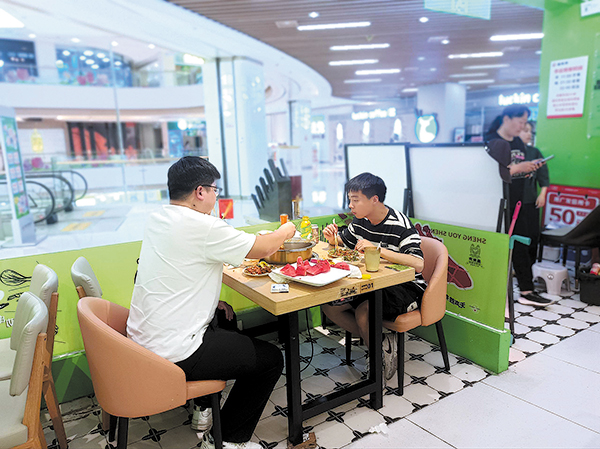Service with a silent smile
Hotpot chain one of many outlets increasingly employing those with hearing impairments, Wang Qian and Shi Baoyin report in Zhengzhou.


For Bai Liping, a 28-year-old hearing-impaired waitress from Zhoukou, Henan, the job has been transformative. After working there for six months, she now handles front-of-house duties with a sentence printed on the back of her work shirt reading: "Tap me on the shoulder for help."
"Before, I worked in factories where communication was rare, and my experience working at a milk tea shop was not good because customers would get impatient when I couldn't hear what they wanted," she texts on her phone. "Here, if customers need something, we text or write notes. When they say 'thank you', it feels great."
Customers like 23-year-old Tian Huaquan barely notice the difference. "It's just a normal restaurant with great food," he says. "If we need extra broth or less spice, we type it out. Honestly, it's fun — like passing notes in class."
Li isn't content with staying in Zhengzhou. With a growing following on social media, he plans to open restaurants in Luoyang and Kaifeng, two other cities in Henan, where he plans to replicate the model.
China has an estimated 70 million people with moderate to complete hearing loss, which accounts for 5.17 percent of the population, according to data about hearing impairment issues. Authorities, nongovernmental organizations, enterprises and individuals like Li have worked to improve inclusion for those with hearing loss.
There have been reports of bakeries, cafeterias and restaurants hiring the hearing-impaired, and thanks to the internet, they have more career options, like becoming livestreamers and working in deliveries.
"Hearing-impaired employees don't need charity — they're talented workers," Li says. "This isn't just about business, it's about changing mindsets."
Qi Xin contributed to this story.




































